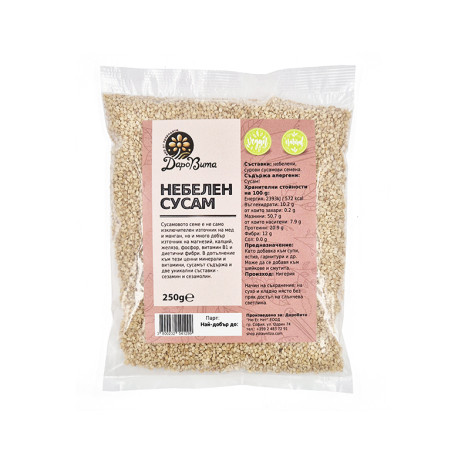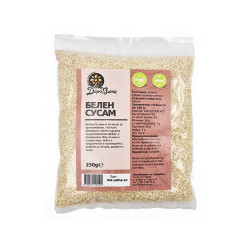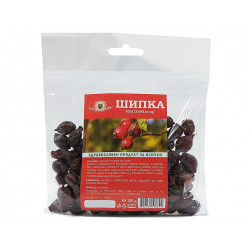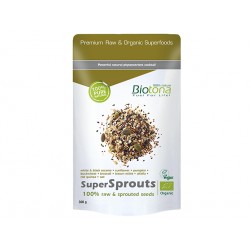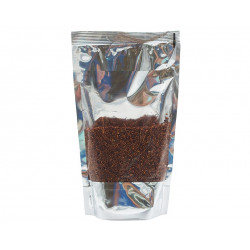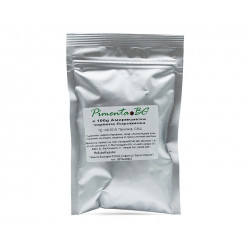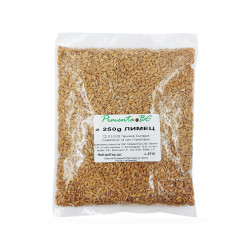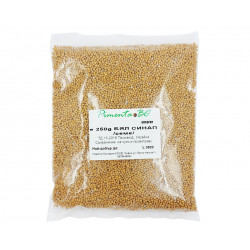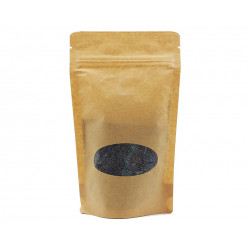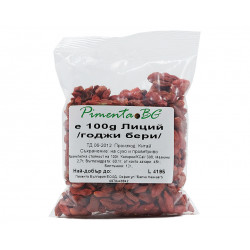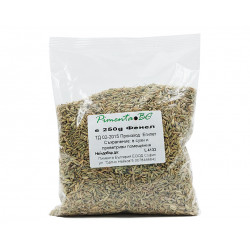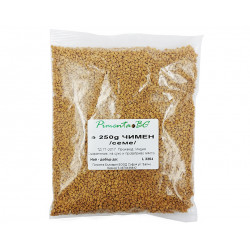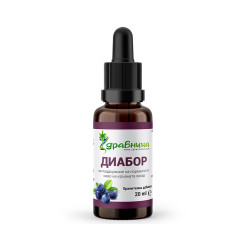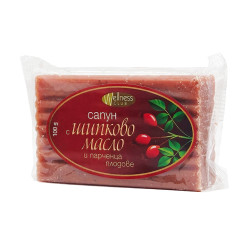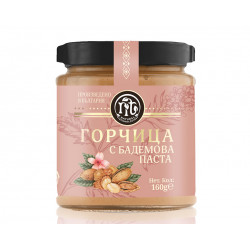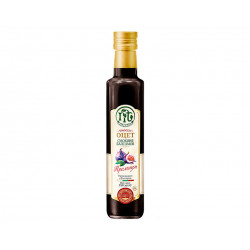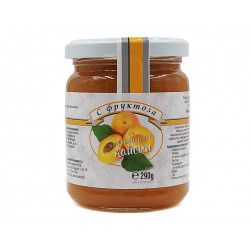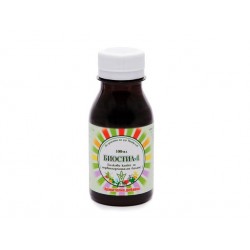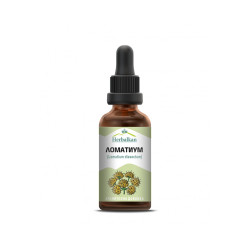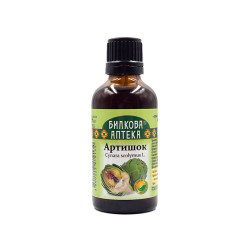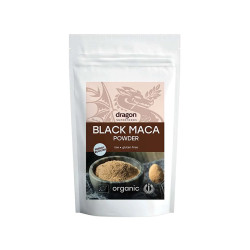* Find a product for a specific disease such as write his name (eg .: Diabetes)
No products
Unhulled Sesame Seeds, DaroVita, 250 g
1,74 €
Sesame seeds are not only an exceptional source of copper and manganese, but also a very good source of magnesium, calcium, iron, phosphorus, and dietary fiber.
EAN Code: 3800232541299
Package Quantity: 250 g
Origin: Nigeria
Ingredients: Unhulled sesame seeds
Shipping Weight: 0.260 kg
Suitable for: Adults, Children, Vegetarians, Vegans
| Volume discounts | |
|---|---|
| Buy 20 psc. | Save: 3,48 € |
| Buy 10 psc. | Save: 0,87 € |


Product information
- 100% natural product
- Natural sesame seeds - unhulled
- GMO Free! Gluten free!
- Vegan product
Sesame is an annual herbaceous plant of the sesame family. There are 12 types of sesame. Homeland of sesame is Africa. It is grown in North Africa, the Mediterranean, etc .; most in India, China, Pakistan.
Sesame seeds contain 53-63% oil, 21% protein and 21% carbohydrates. They are used for food, in the food industry, the medical industry, in confectionery and others.
Sesame is the main product in the production of halva, and ground (known as tahini) is used in the Middle East and the Mediterranean. It is used to season hummus, kebab sauces, most often mixed with lemon and garlic in bread sauce - a popular Arabic appetizer mezze.
Helath Benefits:
Sesame seeds are not only an exceptional source of copper and manganese, but also a very good source of magnesium, calcium, iron, phosphorus, vitamin B1 and dietary fiber. In addition to these valuable minerals and vitamins, sesame also contains two unique ingredients - sesamin and sesamolin. Both substances belong to the group of so-called lignans, which have cholesterol-lowering and vitamin E-increasing effects. Sesamin protects the liver from the adverse effects of oxygen.
Relief in rheumatoid arthritis
Copper, which is found in sesame seeds, is known for its beneficial effects in reducing the pain and swelling caused by rheumatoid arthritis. The effectiveness of copper is due to the fact that this trace element is important in a number of anti-inflammatory and antioxidant enzyme systems. Copper plays an important role in the activity of lysyl oxidase - an enzyme that is needed for the binding of collagen and elastin, which are a major part of the structure of bones, joints and blood vessels.
Lower cholesterol levels
The phytosterol compounds in sesame seeds have a chemical structure very similar to cholesterol. Frequent consumption of hulled sesame reduces the levels of bad cholesterol in the blood, improves the immune response and reduces the risk of some cancers.
Sesame seeds are one of the richest sources of phytosterols. Studies show that sesame contains 400-413 mg per 100 g. For comparison, well-known seeds such as sunflower seeds contain 270-289 mg of phytosterols, followed by pumpkin seeds - 265 mg per 100 g.
Cardiovascular health
Hulled sesame seeds contain antioxidants and anti-inflammatory compounds, including sesamol - a substance that exhibits antiatherogenic properties and thus significantly improves cardiovascular health. Sesame contains a large amount of monounsaturated fatty acids and oleic acid, which lowers bad cholesterol and thus prevents the risk of coronary heart disease or stroke.
For good digestion
Due to its high fiber content, hulled sesame seeds maintain the health of the digestive system and colon. Fiber helps the smooth functioning of the intestines, thus not facilitating the expulsion of waste from the body and relieving constipation.
Ingredients:
Unhulled, raw sesame seeds.
Contains allergens: Sesame.
Nutritional values per 100 g:
Energy: 572 kcal / 2393kJ
Carbohydrates: 10.2 g
of which sugars: 0.2 g
Fat: 50.7 g
of which saturated: 7.9 g
Protein: 20.9 g
Fiber: 12 g
Salt: 0.0 g
Mineral composition per 100 g:
Calcium: 957 mg
Honey: 4.082 mg
Iron: 14.55 mg
Magnesium: 351 mg
Manganese: 2.460 mg
Phosphorus: 629 mg
Selenium: 34.4 μg
Zinc: 7.75 mg
Usage:
As an addition to dishes, soups, side dishes and more. Can be added to shakes and smoothies.
Store in a dry and cool place out of direct sunlight.
Packing: 250 g
Other options
- Hulled Sesame Seeds, DaroVita, 250 g
Hulled sesame seeds are easier to digest, as the shell, which contains indigestible substances, has been removed. They have a milder and sweeter flavor.
2,45 €
Reviews
Products in the same category
Customers who bought this product also bought:
-
 Diabor, natural drops to regulate blood sugar, Zdravnitza, 20 ml
Diabor, natural drops to regulate blood sugar, Zdravnitza, 20 ml 6,24 €
-
 Natural soap with Rosehip oil and fruits pieces, 100 g
Natural soap with Rosehip oil and fruits pieces, 100 g 1,28 €
-
 Hulled Sesame Seeds, DaroVita, 250 g
Hulled Sesame Seeds, DaroVita, 250 g 2,45 €
-
 Mustard with almond paste, Natural Technologies, 160 g
Mustard with almond paste, Natural Technologies, 160 g 3,27 €
-
 Balsamic vinegar from figs, Vinoceti, 250 ml
Balsamic vinegar from figs, Vinoceti, 250 ml 6,29 €
-
 Apricot jam, no added sugar, Dr. Keskin, 290 g
Apricot jam, no added sugar, Dr. Keskin, 290 g 3,02 €
-
 Biostil-1, for neurohormonal balance, Dr. Pashkulev, 100 ml
Biostil-1, for neurohormonal balance, Dr. Pashkulev, 100 ml 4,04 €
-
 Lomatium - herbal tincture, Herbalkan, 50 ml
Lomatium - herbal tincture, Herbalkan, 50 ml 11,25 €
-
 Artichoke, herbal tincture, Bioherba, 50 ml
Artichoke, herbal tincture, Bioherba, 50 ml 4,50 €
-
 Organic Black Maca powder, Dragon Superfoods, 100 g
Organic Black Maca powder, Dragon Superfoods, 100 g 3,73 €


